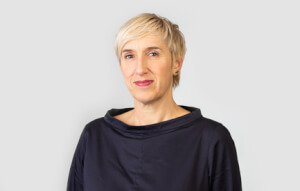We began as part of the body is a body of artworks, created as practice based research by the author, in response to an artist in residence post undertaken at Professor Sara Brown’s eczema genetic research lab (University of Dundee) and ASCUS Art & Science in 2017. The artworks include mixed reality, 3D prints and sound, to create an immersive storytelling experience that explores complex human and ethical questions about the relationship between the body, science and technology. It uses cutting edge technology to examine the uncertainty in health care and translational genetic research, which grows in response to the increasingly rapid emergence of new medical technologies that outpace the development of evidence regarding their benefits, harms, and implications (Hillen et al).
The poetic, experiential and critical aesthetic nature of the art work, re-frames the medicalised body, giving the general public, academics and scientists, a new experience and new ways to think about the human body as a technologically and scientifically distributed entity. Combining a critical arts based approach with scientifically obtained, accurate information, the project gives audiences the opportunity to think and experience these themes and questions, beyond the quantitative limits, structures and systems of science. The project provides access to audiences, beyond the elitist science community, to the genetic bio-medical lab environment, which is not normally accessible to the general public, due to ethical, infection and practical limitations. The project gives audiences critical insight into the both practical activities and philosophical questions around clinical translational research, and how this adds to the evolving relationship between embodiment, technology and science.
The artwork is an immersive journey, guided by a spoken-word narration, telling the story of organotypic (artificial) skin’s short ‘in-vitro’ life, from the point of view of the cells. The visuals overlap a digitally captured version of the lab with the viewer’s real world installation experience, inhabited by magnified, scientifically accurate, skin cells, which were captured using microscopy, to create an immersive experience that blends realities. The project is amongst the earliest to use the Magic Leap, a headset that is key in a new wave of immersive technologies, which present audiences with a new paradigm of experiences that blend the real and digital environment.
The author’s unique position and approach is as an artist and creative researcher, not a bio-medical scientist, and interest therefore is not in the technology and science itself, but in its affective potential and implications.
References:
Marij A.Hillen, Caitlin M.Gutheil, Tania D.Strout, Ellen M.A.Smets, & Paul K.J.Han., Tolerance of uncertainty: Conceptual analysis, integrative model, and implications for healthcare, Social Science & Medicine, Volume 180, May 2017, Pages 62-75 https://doi.org/10.1016/j.socscimed.2017.03.024
Back






